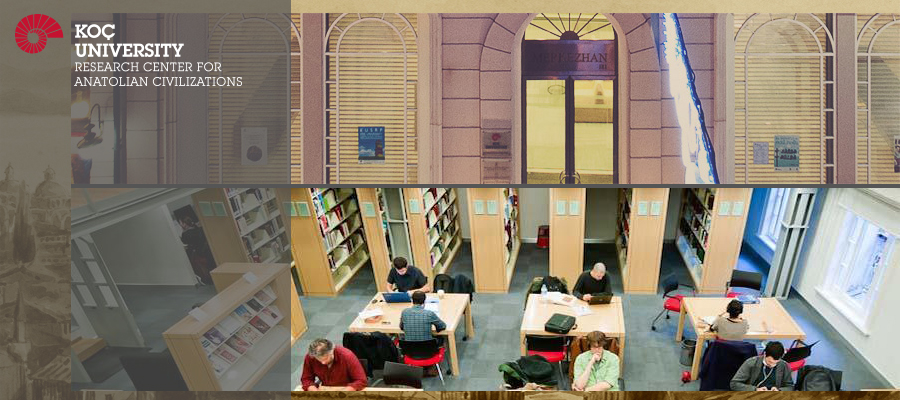Koç University invites applications for PhD, Post-Doctoral, and Senior Fellowships at Koç University's Research Center for Anatolian Civilizations (ANAMED). Opportunities include regular fellowships for support of residential and a few non-residential scholars for the full academic year. Several short-term fellowships for individual or group projects with durations between 2 weeks and 2 months are available for post-doc and senior applicants needing to study in Istanbul for shorter periods of time. A few post-doc or senior applications for regular and short-term fellowships that qualify for collaborative fellowships involving Koç University faculty, centers, or facilities will be preferred. Applicants for residential/non-residential, short-term, and collaborative fellowships are encouraged to consider their applications with one of several of ANAMED’s research themes. Additionally, several joint fellowships with specific application criteria are available as well.
All ANAMED fellows are expected to devote themselves full time to their research projects, to be active members of Koç University’s academic community, and, for full-year fellowships, to give two lectures on their work during the course of the year. Applications from scholars of all nationalities are encouraged, yet fellows must be proficient in English, the language of instruction at Koç University.
Established in 2005, ANAMED’s mission is to promote and produce cutting-edge scholarship contributing to the growing body of critical knowledge on Anatolia and its civilizations. Applications focusing on the archaeology, art history, heritage, and history of Anatolia from the Neolithic through the Ottoman eras are welcome from scholars of these and allied disciplines, including those that focus on the management, conservation, and presentation of the past. Located in the Beyoğlu district of Istanbul, ANAMED is near many research institutions, archives, and other scholarly facilities and thus serves as a convenient and comfortable locus for intensive study.
